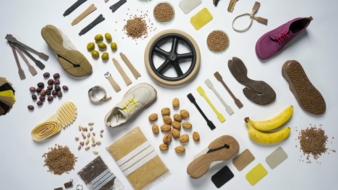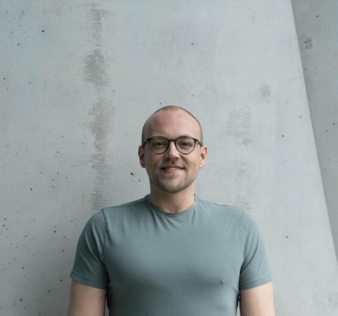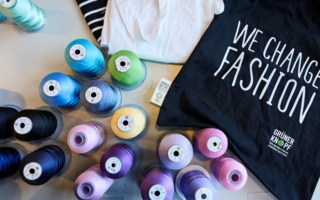17/07/2024 – Start-up interview
Circular cleantech materials for a sustainable future
textile network met with Kuori, a Swiss cleantech start-up dedicated to advancing a post-oil economy by creating biodegradable and elastic materials from food byproducts like olive pits, banana peels, and walnut shells through a circular economy approach. Arthur Groh, Chief Technology Officer (CTO) at Kuori, gave us an insight.
textile network: When and by whom was the company founded?
Arthur Groh: Kuori was founded by Sarah Harbarth in March 2022, who is the company’s CEO. The idea for starting the company originated during her bachelor’s studies in Product and Industrial Design. In one of her courses, Sarah began experimenting with various food by-products to develop sustainable materials. This inspired her to look for ways to utilize these by-products and transform them into valuable resources.
textile network: How many employees work in the company?
Arthur Groh: We have an interdisciplinary team with expertise in materials science, mechanical engineering, design, business, and marketing. Currently, eight people work in the core team. Additionally, there are four individuals in supportive roles at our laboratory at the University of Applied Sciences and Arts Northwestern Switzerland, who assist us with their technical know-how. Moreover, two freelancers are part of our team, taking care of IT and graphic design.
textile network: What products does the range include, and what makes them unique?
Arthur Groh: Our materials replace conventional (fossil), non-biodegradable rubbers, and elastomers. Our granules are very versatile and can be used in various industries and applications such as the automotive industry or fashion industry.
What makes them unique is that unlike traditional plastics that contribute to microplastic pollution, our materials are designed to only emit biodegradable microplastic during the lifespan of its products. Additionally, Kuori transforms unused food by-products into a valuable resource by incorporating them in high proportions into the bioplastic matrix to modify the material properties.
textile network: Can I order the products as a specialist retailer, and where are they currently available for purchase?
Arthur Groh: Currently, you can order our materials via email (info@kuori.ch), as we try to tailor solutions to each client’s specific needs and products. We prefer to work closely with our clients. There’s also significant potential in co-developments, where we aim to incorporate any unused side streams into the production of our materials. Samples the size of credit cards are readily available for order. In the future, orders will also be possible directly through our website.
textile network: Will other trade fairs be attended?
Arthur Groh: Indeed, trade fairs are a valuable asset for us. This year, we are excited to showcase Kuori at various fairs, including ISPO in Munich in December.





